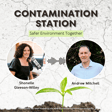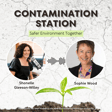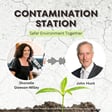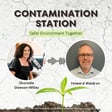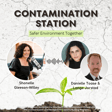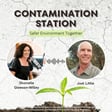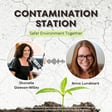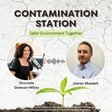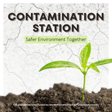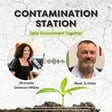
Contamination and Liability: What Councils Need to Know with Elizabeth Wild
Elizabeth Wild has more than 30 years of experience in environmental law, with a particular focus on managing issues related to contaminated land and remediation law. She has worked with government clients, listed property trusts, property developers, and large manufacturing, transportation, energy, infrastructure and resources companies. Liz is recognized as a leading or pre-eminent practitioner in environmental law in all major directories, including Doyle's Guide, Chambers, The Legal 500 Asia Pacific, and Best Lawyers.
Liz advises on all legal and strategic aspects associated with contaminated land, including disputes regarding allocation of liability for contamination, obtaining planning and environmental approvals for the remediation and development of contaminated land, and transacting and negotiating the sale and purchase of contaminated sites. She has been involved in many of the landmark cases in this area and acts for polluters and claimants in numerous environmental disputes involving the torts of nuisance and negligence. She is recognized as an authority regarding legal liability for PFAS (per- and polyfluoroalkyl substances) contamination.
In this episode, Elizabeth shares practical legal insights into the key areas of risk and responsibility for councils involved in contaminated land management. She outlines how legal liability can arise for councils—even when they are not the polluter—and provides tips on how to reduce risk, particularly during development assessments and land transactions.
We also cover how to navigate the complexities of information disclosure, including when and how to share contamination information with potential buyers, developers, or the broader public. Liz highlights important real-world examples and discusses what councils should be sure to disclose during negotiations and approvals. She also explores the legal complexities of PFAS, including the question of when a duty of care arises and how liability is determined—particularly where knowledge of site contamination may not have been clear at the time.
Finally, Liz discusses the different considerations councils must make in the development assessment process to manage contaminated land risks in flood-affected areas and coastal erosion zones. Her insights offer a clear, grounded perspective on how councils can protect themselves while playing a proactive role in land remediation.
-----
Are you a local NSW council member looking for more resources like this?
You are invited to join the Local Government NSW Contaminated Land Network!
Local Government NSW (LGNSW) hosts a free, online network for council staff on the topic of contaminated land. The network includes an online forum for collaboration, information sharing and announcements about contaminated land regulation, guidance and training opportunities. Monthly meetings are held on themes that were set by the network participants, with presentations from regulators, technical experts, and case studies by councils.
Since the contaminated land network commenced in December 2023, more than 50% of NSW councils have joined, with over 200 participants. Feedback shows that councils are benefitting greatly from the network meetings and discussion on the platform, and we are pleased to invite you to join us.
To join the network, please use this link: https://lgsa.wufoo.com/forms/w1rf0os910rxyl6/
The project also comprises a webpage with up-to-date information and links to resources, which can be accessed here.
We hope to see you on the network soon!

